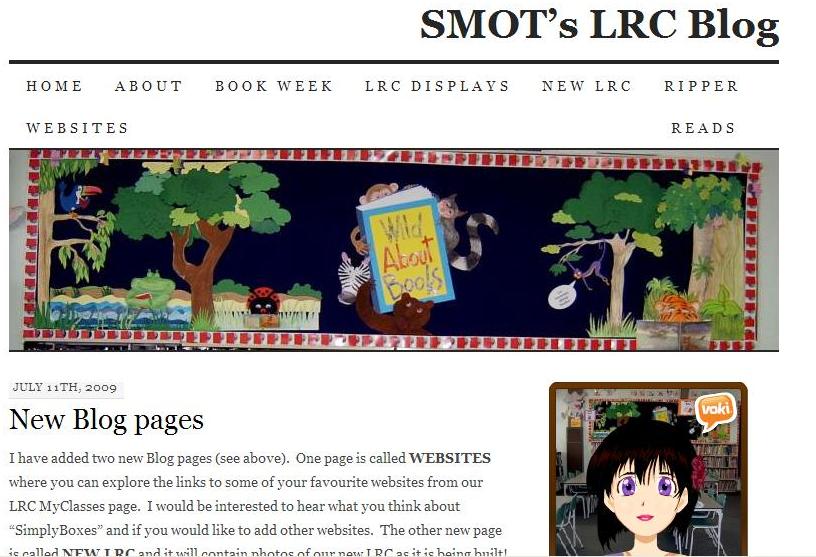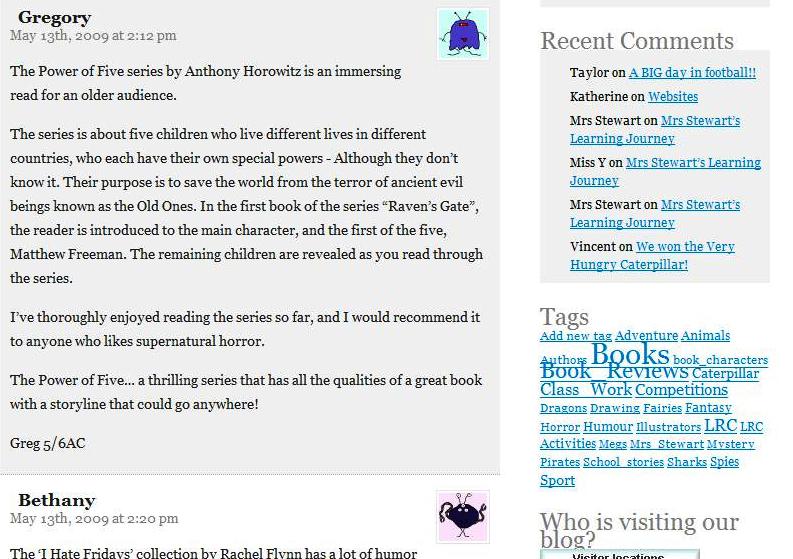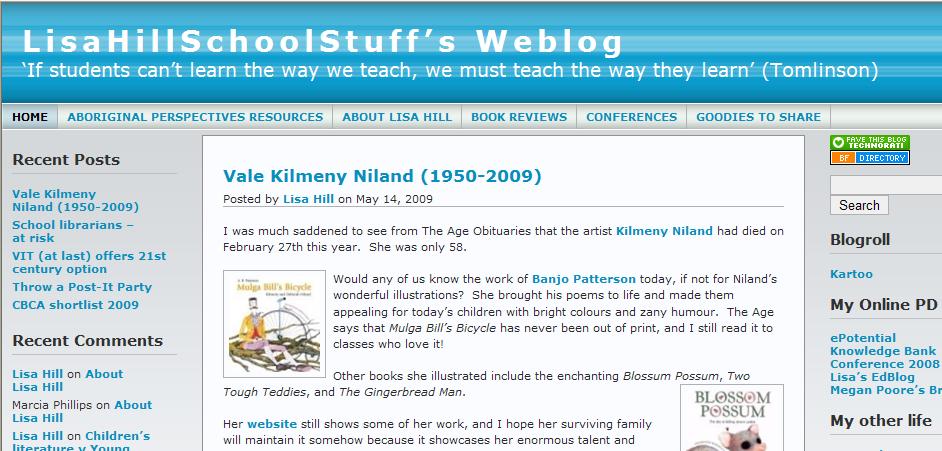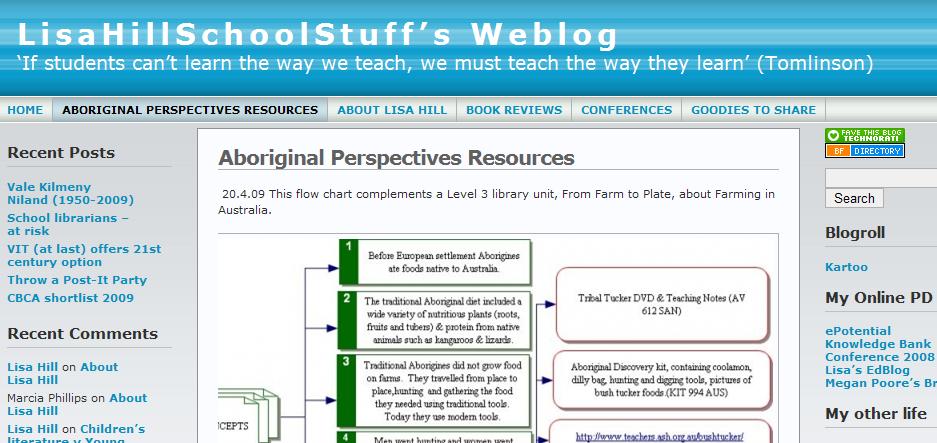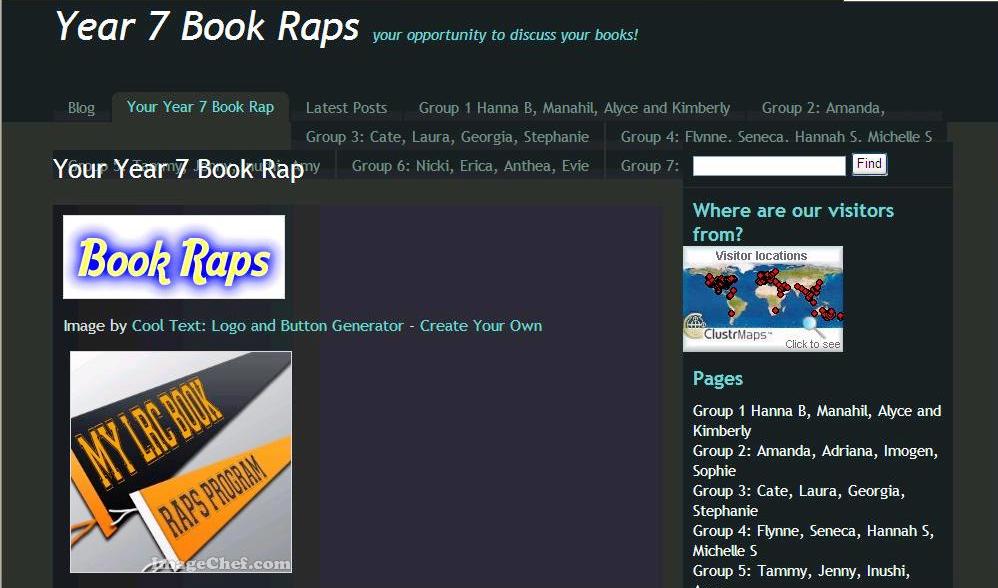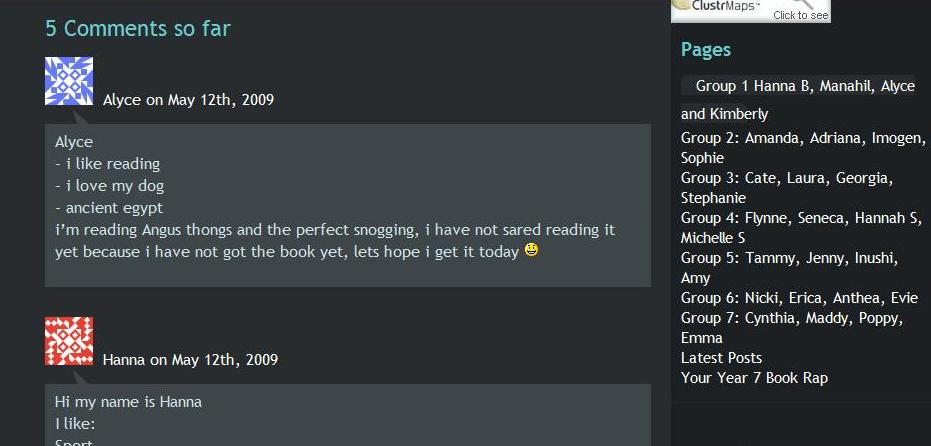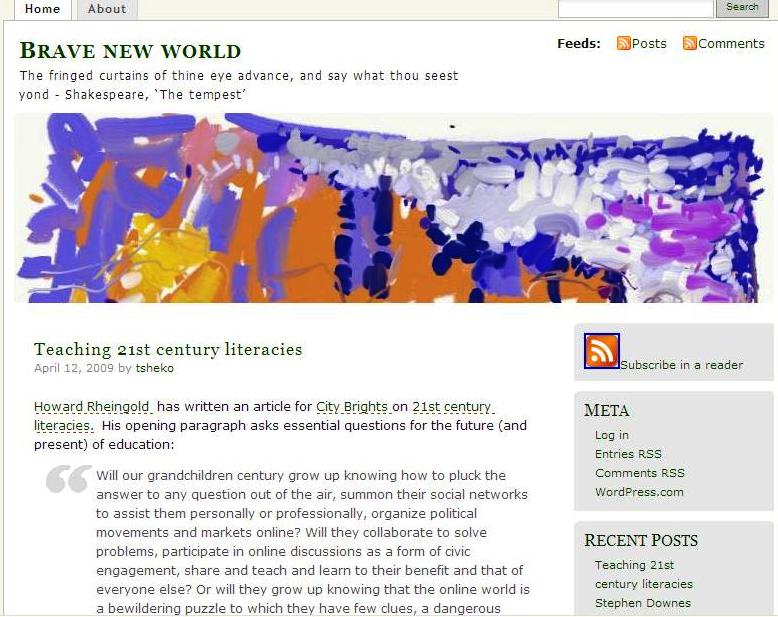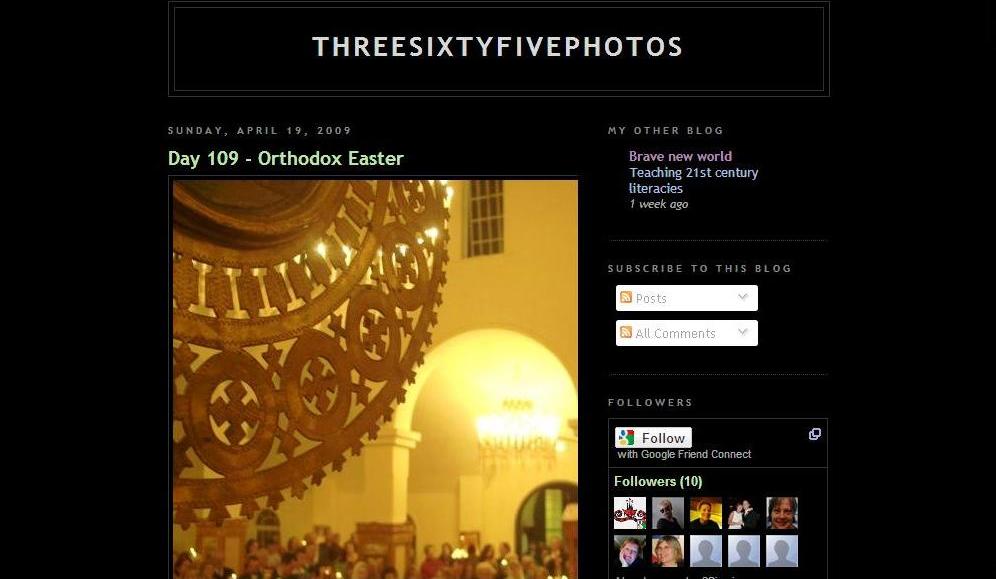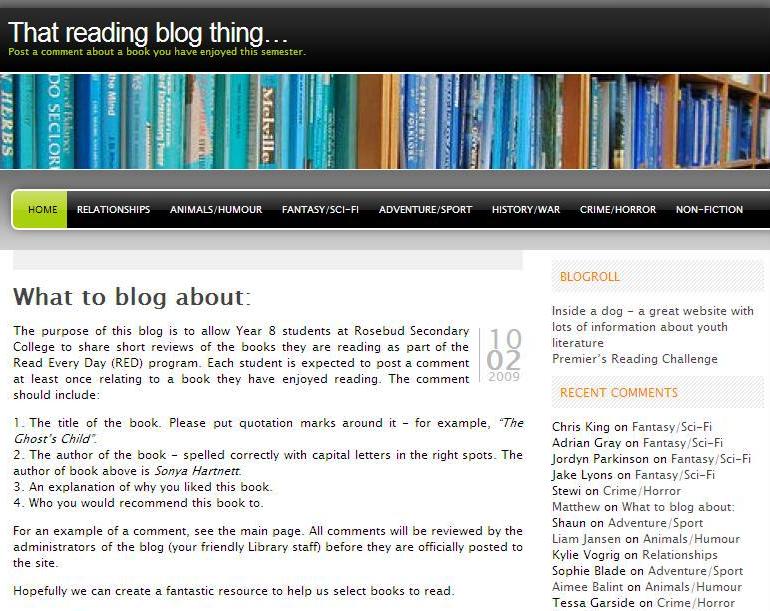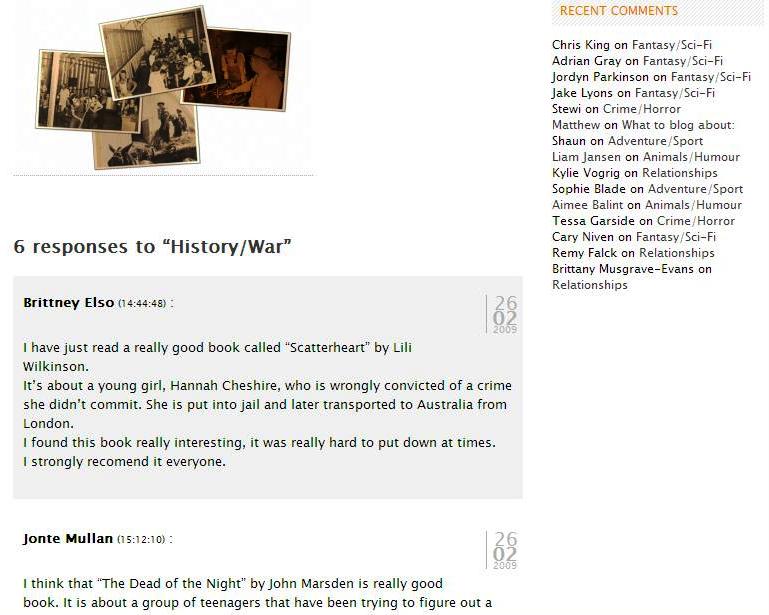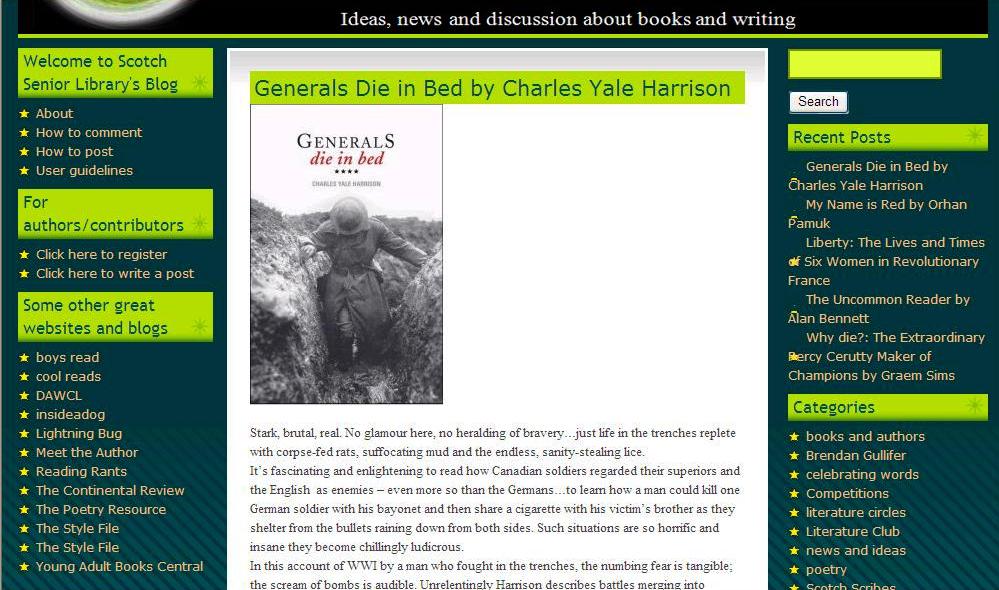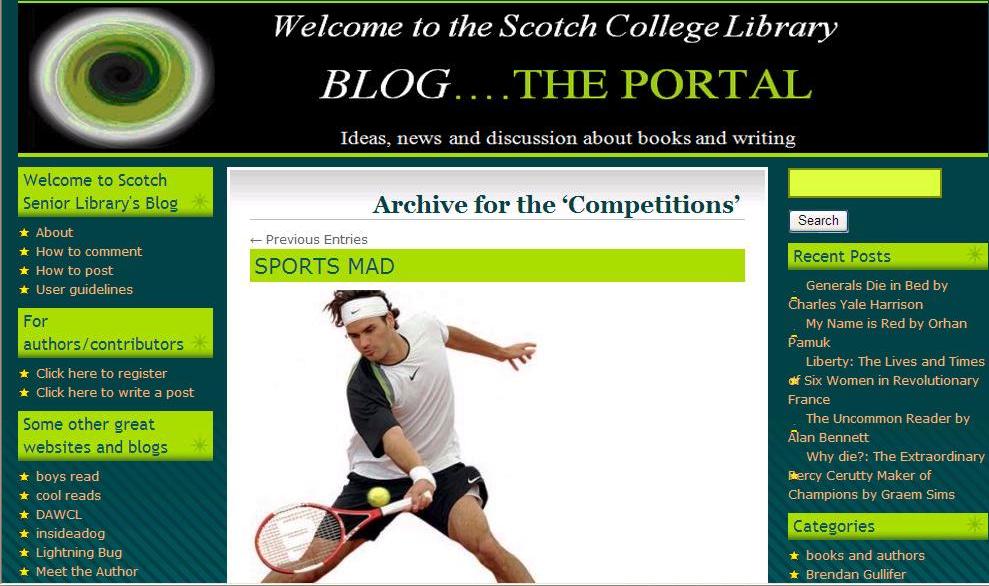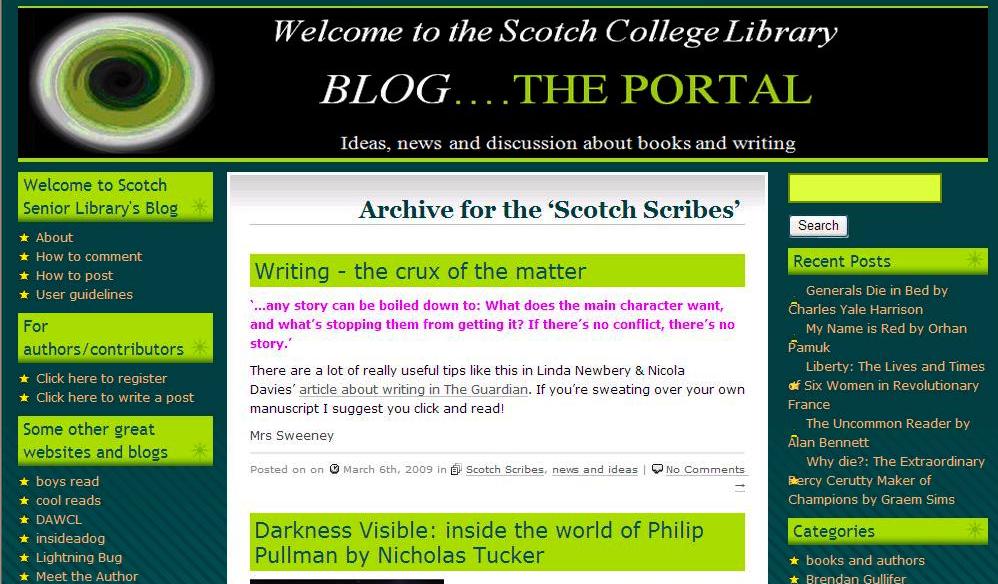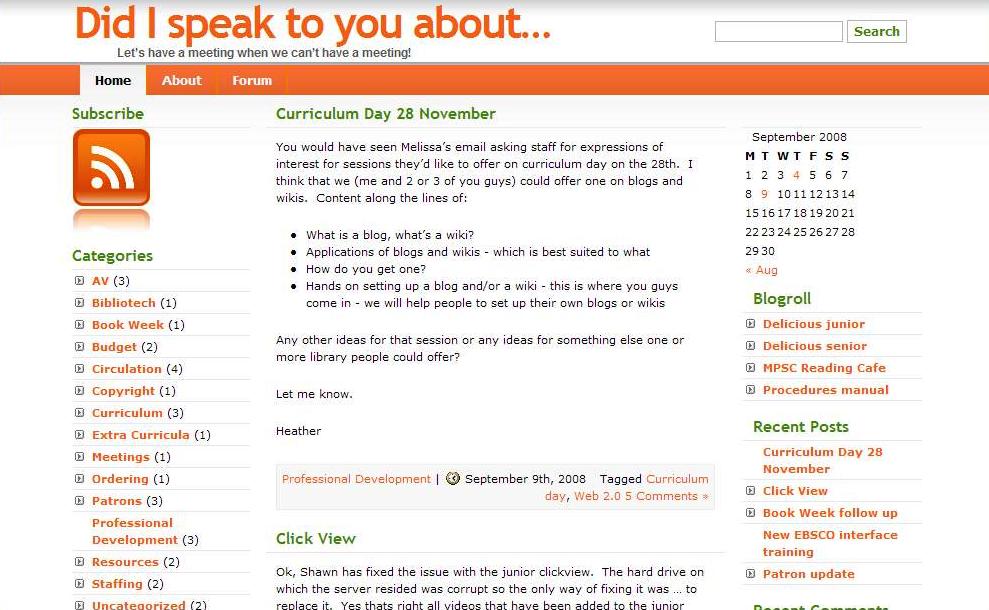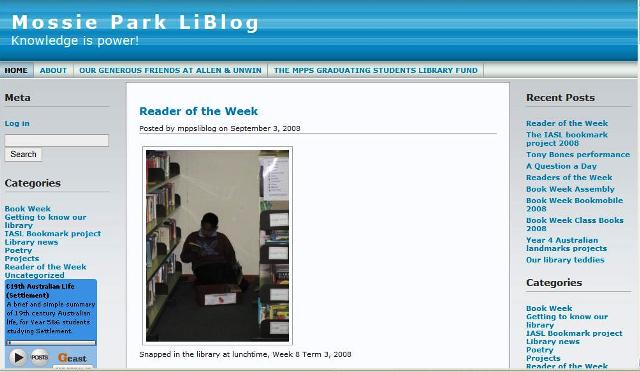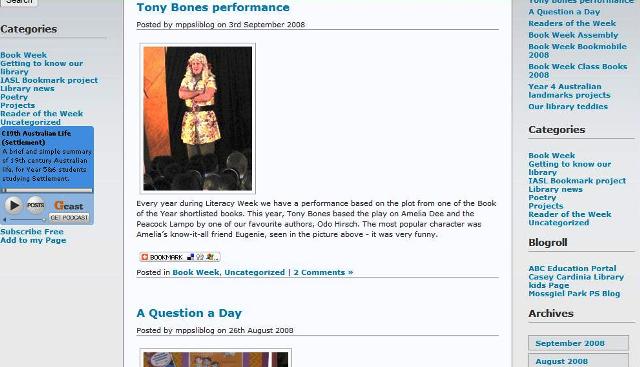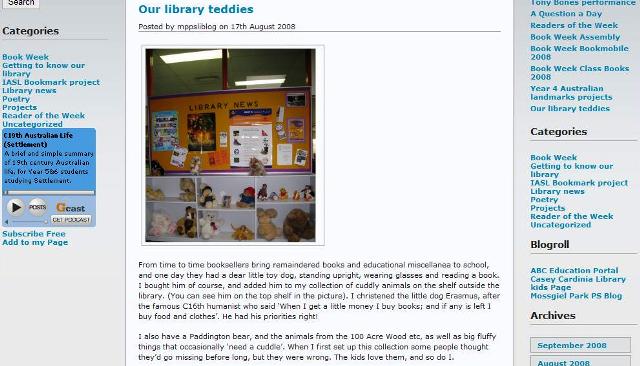As readers of Bright Ideas, you are probably already familiar with Lisa Hill. Lisa Hill is the Director of Curriculum and teacher librarian at Mossgiel Park Primary School in Endeavour Hills and has been the feature of two previous Bright Ideas posts: the first about her school library blog and the second focussing on her professional learning blog. Lisa is now kindly sharing her personal reading blog.
Having set up my professional LisaHillSchoolStuff blog in March last year, I found it wasn’t long before I wanted the same sort of space to write online about what really matters to me: reading books. I am a voracious reader, and have been since childhood. My family travelled a lot but wherever we lived in the world, my father’s first task was to join us up at the nearest library so that we could resume our Saturday routine: a weekly walk to the library where we borrowed as many books as we were allowed, followed by loafing on our beds with a book until late in the afternoon when we were shooed out to play by my mother.
In 1997 I began journaling my thoughts about the books I read, and I wish I’d started long before that. When you read about a hundred books a year as I do, the details fade as the years go by. Although it can be a pleasure to re-read a book, it’s chastening to have to do this when you don’t really want to, in order to join in a conversation about it. My journal entries range from cursory dismissals of books I didn’t like to long reflections on more complex books such as The Masterby Colm Toibin. Sometimes my response is deeply personal because the book relates to something in my own life; at other times it’s like an impersonal review. I wrote pages and pages about my journey through Proust and almost as much again about Simon Schama’s Landscape and Memorybecause it helped me to clarify my thoughts about them. I still do this journaling, often late at night in bed, even though most of what I read now ends up as a blog post on my ANZ LitLovers LitBlog.
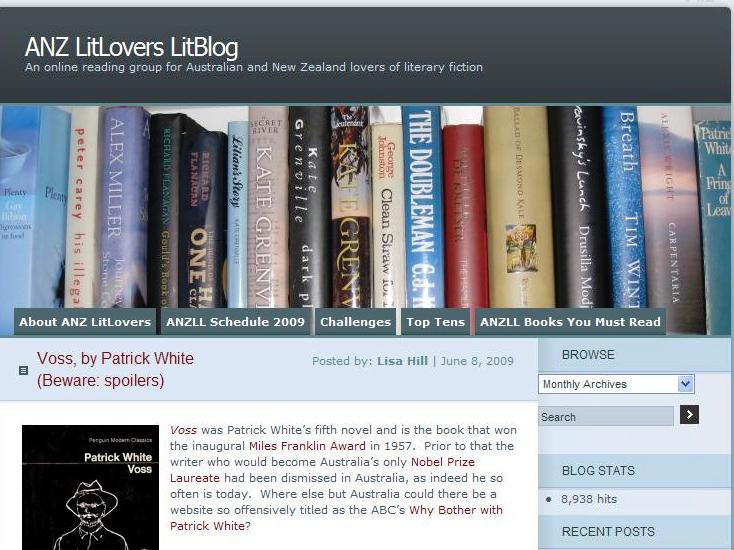
ANZ LitLovers home
Back in 2002 I had set up ANZ LitLovers as an online reading group and developed a website as a resource for members – but it was always a pain to update it. When I bought a new computer that didn’t have the necessary software, it seemed to me that a LitBlog was a much easier and more flexible alternative, and I would be part of a growing international LitBlog movement, celebrating Australian Literature in my own little niche.
In the beginning I had ambitious ideas about other members of the group joining in and posting, but this hasn’t happened. My group members write fluently and with great perception in the privacy of our online group, but they don’t seem to want to publish. The one exception is a journalist, as comfortable with public writing as I am, but after posting her BBRLMs (Best Books Read Last Month) three times, she hasn’t done so since. So it has become, by default, my personal LitBlog, a place for me to post my book reviews, and ramble on about book-related topics.
At the time of writing, it has nearly 9000 hits, and is linked to other LitBlogs around Australia, the UK and the US. ClusterMaps tells me that I have readers all over the world, but I think the ones in Slovenia, Myanmar and the Maldives must have stumbled on the blog by accident LOL. However, there have been nearly 2000 viewers in Australia and over 1500 from the US – and these would translate into healthy sales if my writing were a book and not a blog! A growing number of people are commenting on my posts – which now number around 145 and that’s an average of thirteen posts each month since July last year. I think it’s popular because I’m not a professional reviewer and my style sits somewhere between academic and general reader. I take care to add the titles and authors as tags, and I categorise my posts to make them easy to find. And I write often – usually every weekend – so there’s always something new to read if they’ve subscribed using RSS.
My all time top post (not counting the page about our reading schedule and our About page) is the one about Google Books, followed by my review of The Slap which is on the Miles Franklin shortlist and has been featured prominently in the media. A post about Modernism got 17 hits in less than 24 hours, which surprised me, but the one I’m about to write about Patrick White’s Voss won’t be nearly so well-received, I bet! Another very popular page is our ANZLL Books You Must Read list and a Reading Challengespage, but mostly people find my blog when they Google a particular title: although Perry Middlemiss’s Matilda is theAustralian LitBlog, he has more diverse interests than I do, and there’s not a lot of people writing online about Australian literary fiction or classics like me. (I write about international contemporary fiction and classics, and non-fiction, too, but that’s not my focus.)
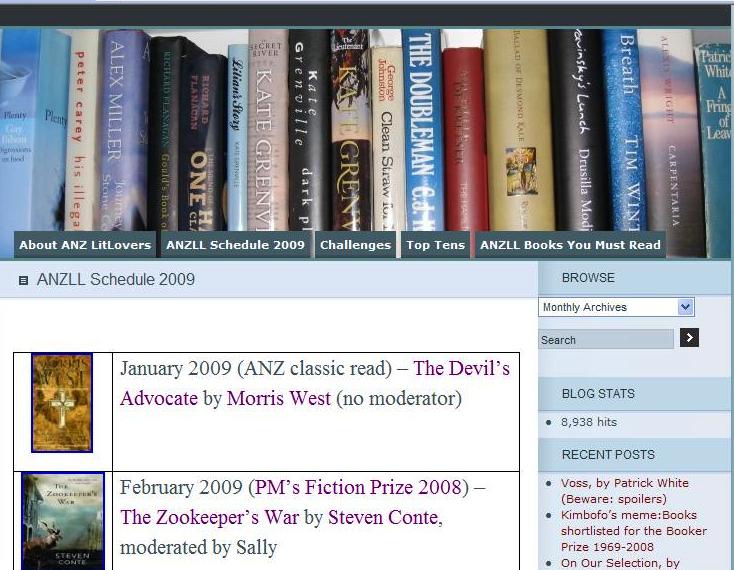
2009 schedule
Many people blog solely for their own pleasure and there’s nothing wrong with that, but I think that the key to having a blog that others want to read is to find a niche, and to develop a personal style. I’m a serious reader, and my reviews reflect that, but they’re informal rather than pompous (I hope!) and they’re always my honest opinion. (The only books I’ve received as review copies are the children’s books I review for Allen and Unwin, and even so I was a bit brutal on one occasion where I really didn’t like the book.) But I don’t just review books, I blog about all kinds of book related things…
I’ve written about philanthropy for booklovers, about meeting my favourite author Kate Grenville, about rearranging the bookshelves in my library ( that’s the one at home) and about reading by candlelight for Earth Hour. I’ve ticked off a columnist in The Age and suggested Christmas gifts for booklovers. I succumb to Book Memes (twice), post about festivals that I go to, have a go at predicting who the winners of awards might be, and am not afraid to express my opinion about ‘sacred writers’ who in my opinion are victims of their own overblown status. I jazz up the blog with pictures, maps, videos that tie in with books, book-covers and even an Animoto and I hyperlink almost obsessively so that people can click straight through to anything on another site that I refer to. These strategies all come courtesy of what I’ve learned from Sue Waters at EduBlogs which is an excellent place to start any learning journey about blogging.
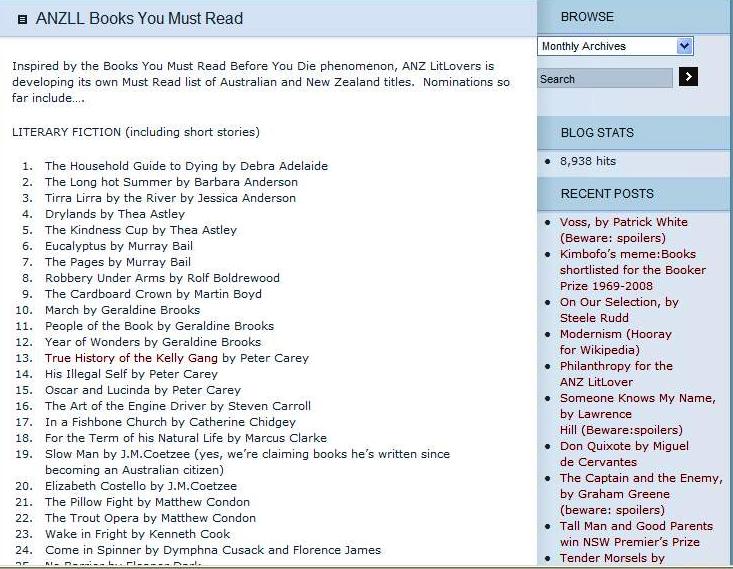
Books you must read
However, the most important point about having a personal blog is that it ought to be something you enjoy. For me, blogging at ANZ LitLovers is an adjunct to what I already do in my reading journals. I write for pleasure, at home and online!
Lisa has certainly given so much to others through her blogs and by reflecting on what she has been reading and then writing this for an audience is a terrific skill to have and constantly refine. Once again, well done Lisa and thank you for sharing your passion for books and your amazing amount of work with others. As well as reading Lisa’s blog for personal pleasure, students of English Literature could find some useful and interesting information.

